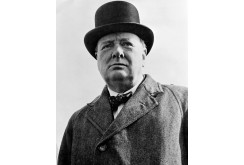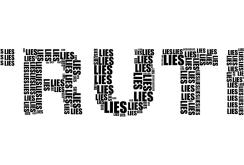What Would Winston Churchill Say to Donald Trump? We know, because he actually said it -- though not, of course, to Trump. It bears repeating.
A comparison between Churchill and Trump is mortifying. How could we have elected such an odiferous cesspool of a man? If Churchill’s actions speak louder than his words, his soaring words resonate like the sound of Big Ben.










